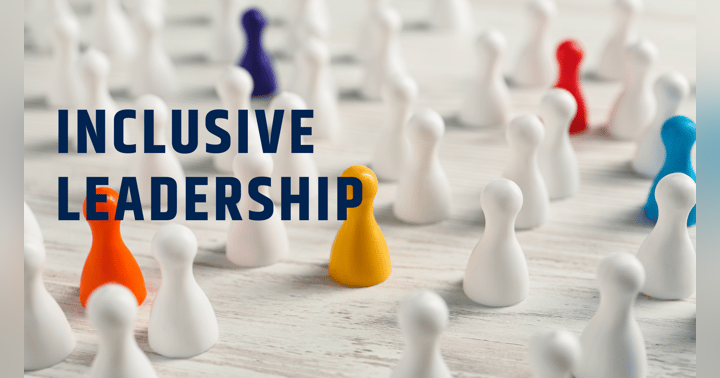Maximizing NIL Opportunities: A Student Athlete's Guide to Success in the New Era of Sports

Imagine being a student-athlete, trying to juggle your sports career, academics, and the opportunity to turn your name, image, and likeness into something profitable. Sounds challenging? Well, hold on tight as I share some nuggets from my conversation with Roy Hall Jr., a former NFL player who has lived this reality. Roy's story is a testament to the power of unwavering commitment to your dreams, maintaining academic excellence, and effectively marketing oneself. In the episode Navigating NIL Opportunities, Academic Success, and Life After Sports w/ Former NFL Wide Receiver Roy Hall Jr., he paints a clear picture of how he navigated these challenges and how you can do the same in your own life. This blog post was inspired from our interview.
As a former NFL wide receiver, Roy’s impressive journey from a standout athlete at Ohio State to professional football with the Indianapolis Colts offers a unique lens to understanding the delicate balance of academia and sports mastery. Now, with his experiences, he sheds light for current student-athletes navigating Name, Image, and Likeness opportunities (NIL), academics, and life after sports. Roy's insights come from his first-hand experience in the field, where he's seen the highs, lows, and determined the essential elements of success.
As a student-athlete, you are at the center of an exciting and potentially life-changing phase. Your journey is not just about sports; it's about leveraging NIL opportunities, prioritizing academics, and making the most out of university partnerships. It's about building a strong personal brand, something that will not only benefit you in the present but also in your life after sports. It's about developing skills that transcend the field or court and spill over into your personal and professional life, making you a well-rounded individual.
Here are the key steps:
- Understand the Business Side of NIL
- Prioritize Academic Success and Athletic Performance
- Build a Personal Brand Locally
- Leverage University Partnerships for Career Opportunities
- Plan for Life and Career After Sports.
- Understand the Business Side of NIL
In the fast-paced realm of college sports, athletes can find themselves tossed in the deep end of business and marketing negotiations with little prior knowledge or experience. The complexity of this landscape can be daunting, especially when it pertains to the new world of NIL rights. It's a situation that demands more than a simple dip of one's toes --- they must dive headfirst into understanding the dynamics involved. Recognizing the business side of NIL is crucial, requiring athletes to navigate marketing opportunities, tax implications, and brand alignment on their own. Unlike professional athletes with marketing firms at their disposal, student-athletes must wear both the hats of an athlete and a business negotiator. This introduces a need to educate oneself not just in their respective sport, but also in marketing and business principles to effectively relay their value. From Roy's perspective, navigating the business side of NIL is reminiscent of maneuvering a complex game of chess. It's all about making strategic decisions and positioning oneself optimally. As he sees it, understanding the business side of NIL is a two-fold process. First, an athlete must understand their personal brand, their value proposition, and how it fits into the wider market. Moreover, it's also about understanding the landscape itself, studying and adapting to the playing field. For instance, Roy emphasizes the strategy of thinking locally, leveraging ties with local businesses that can potentially last beyond a college sports career. Apart from that, Roy also notes that success in any business venture, including NIL, is largely dependent on an individual's ability to balance competing priorities, especially the important balance between academics, athletic performance, and NIL opportunities. From a broader perspective, understanding the business side of NIL rights goes beyond mere financial gains; it's about nurturing an entrepreneurial mindset and building a long-term business and brand that aligns with an athlete's vision and values. It's especially crucial during a time when the narrative around college sports is rapidly changing, and student-athletes are increasingly seen as key stakeholders with significant influence. By developing a better understanding of the dynamics involved, athletes will not only be in a better position to optimize their income from NIL opportunities but also gain life-long business skills and acumen. - Prioritize Academic Success and Athletic Performance
Living in a world that's increasingly commercial and competitive can be challenging, especially for those embarking on a journey through modern sports and academics. Often, the whirlwind of sponsorships, endorsements, and NIL ventures can overshadow the true priorities of a student-athlete. However, one must remain focused on the quintessential building blocks of success - academic achievement and athletic performance. Just like a book is first admired for its well-finished cover, the real value lies in the pages within. For a student-athlete, juggling between the race to fame and the necessity of education may seem daunting, but it's imperative to identify which race truly leads to the finish line of life-long success. In my conversation with Roy, the importance of having a composed mindset was distinctly emphasized. Roy explains the importance of the business side of NIL rights but reminds listeners of the necessity to prioritize academics and athletic performance. His journey as a former NFL wide receiver and now a motivational speaker reflects the significance of diversifying one's skills beyond the field. Roy's discourse presents a clear example of the potential rewards that can come from not getting lost in the glamor of quick success. Instead, he advises student-athletes to view their unique position of power as an opportunity to gain knowledge, both in their field of sports and academics. It's a testament to the notion that the pursuit of success is a marathon, not a sprint. Prioritizing academics and sports encourages a culture of comprehensive development, which produces not just exceptional athletes and scholars, but extraordinary individuals. - Build a Personal Brand Locally
Building a personal brand locally is an effective strategy for student-athletes navigating NIL opportunities. This tactic aids in maintaining a balance between academics, athletic performance, and exploring marketing opportunities. Many times, athletes focus on hitting the big leagues and gaining national attention—however, this approach might veer them off the path of their primary goals. Concentrating on establishing relationships with local businesses creates a strong community network and can turn out to be mutually beneficial. These affiliations can lead to potential sponsorships and collaborations without athletes having to compromise their academic and sports commitments. Such an approach helps create a well-rounded and resilient athlete, capable of handling different facets of their career. During the podcast interview, Roy provided valuable insights regarding prioritizing local opportunities. He emphasized the importance of aligning with local businesses, stating that these relationships could extend beyond college years—whether or not the student makes it to the professional level. Roy’s philosophy on local brand-building stresses the longevity and sustainability of these connections. His perspective sends a clear message that while the allure of national recognition is tempting, starting small and local is more effective and fulfilling in the long run. The significance of building a personal brand locally lies not only in forming healthy and sustainable relationships but also in the doors it can open for athletes beyond their sports careers. Having a recognizable name in local communities can lead to job opportunities and collaborations after their sporting tenure concludes. Furthermore, it brings a feeling of genuine connection and belonging to the athletes—a key aspect of their overall growth. By building their brand locally, student athletes learn to manage life outside the court or field, nurturing interpersonal skills, an understanding of business dynamics, and a sense of responsibility toward their community. These qualities go beyond athletic and academic achievements, developing well-rounded individuals prepared for life's challenges. The journey of local brand-building, therefore, becomes an integral part of student-athletes' persona and their life beyond sports.
Understanding the journey of a student-athlete isn't just about the games played or records broken, it's about creating a strategy to excel both on and off the field. The information shared in this blog is essential for those looking to navigate the world of NIL opportunities, academics, and life after sports. The tips mentioned – from understanding the business side of NIL and prioritizing academics and sports, to building a personal brand and leveraging university partnerships – are all key stepping stones in this journey. It's important to recognize that it isn't just about athletic performance, but also about how you manage your image and maximize opportunities. In essence, it's about becoming a well-rounded individual who is as competent in the classroom or boardroom as they are in the sports arena. So, as you face the exciting but challenging journey ahead, remember to take these lessons to heart and use them as your compass.
Have you tried these tactics and strategies? Share your successes and challenges with us in the comments.
Connect with me here:















